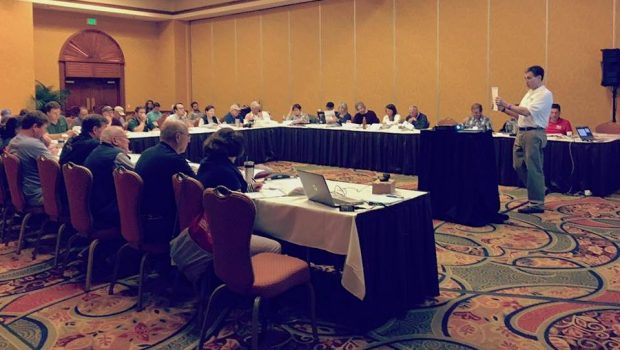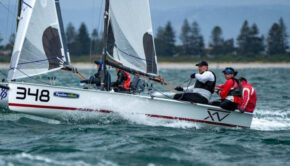New resource guide for recreational boating skills instructors
Published on March 8th, 2018
Washington, DC (March 8, 2018) – The U.S. Coast Guard’s National On-Water Standards (NOWS) Program grant management team and American Boat and Yacht Council (ABYC) have announced the publication of an American National Standard for the on-the-water instruction for beginner-level recreational boating operators.
The new Instructional Approach Standard (formally titled EDU-4 On-Water Instruction Standard) helps boating safety educators design and deliver boating skills instruction that takes place on the water.
The standard is founded on the best practices and guidance of recreational boating experts from around the country. It identifies 14 priority characteristics boating instruction experts know are most important to consider when offering high-quality on-water instruction for skills development. These characteristics focus on the method of skills-based instruction as well as the qualities of the people and organization needed to effectively deliver it.
Education providers large and small, established or new, will find the standard helpful to design or update approaches to on-water instruction. It identifies the qualities of an effective approach and lets providers figure out how best to design them into their programs. Therefore, providers can use the new standard to develop approaches to instruction that work best for their unique situations.
The new Instructional Approach Standard comes with a 77-page How to guide. This comprehensive Technical Support Document (TSD) gives education providers detailed information to help understand and use the content of the Instructional Approach Standard to design a safe and effective approach to on-water skills-based instruction.
The Instructional Approach Standard and its TSD work together with the powerboating, human-propelled craft and sailing American National Standards previously developed by the NOWS Program. These skills standards identify the skills students should be able to demonstrate as a result of participating in skills-based instruction. Together, the approach and skills standards help boating safety educators design and deliver high quality on-water instruction that gives entry-level boaters the skills and experience they need to safely operate a recreational boat.
On-water instruction for skills development is the future of boating safety education. The four standards provide all recreational boating educators a powerful set of common national standards for what skills to deliver and how to deliver them. Together, they will help raise the level of quality, consistency and availability of boating safety skills education across the country – increasing the level of safety and enjoyment recreational boaters experience on our nation’s waterways in the process.
To download free copies of the instructional approach standard and its TSD… click here.
Questions: K. Brian Dorval, National On-Water Standards (NOWS) Facilitator, brian.dorval@usnows.org
Background:
The National On-Water Standards (NOWS) Program is a collaboration initiative lead by a diverse group of 27 volunteer Subject Matter Experts from many different recreational boating organizations across the recreational boating community.
Funded in part from US Coast Guard Grants awarded to US Sailing, and facilitated by a professional facilitator, the purpose of the NOWS Program is to help raise the overall quality, consistency and availability of recreational boating entry-level skills instruction throughout the United States.
It does this by developing national standards, tools and other resources education providers can use to design and deliver on-water instruction that trains people to operate recreational powerboats, sailboats or human-propelled craft.
The ultimate goal is to increase the level of safety and enjoyment recreational boaters experience on our nation’s waterways… saving lives in the process.
Source: US Sailing









 We’ll keep your information safe.
We’ll keep your information safe.